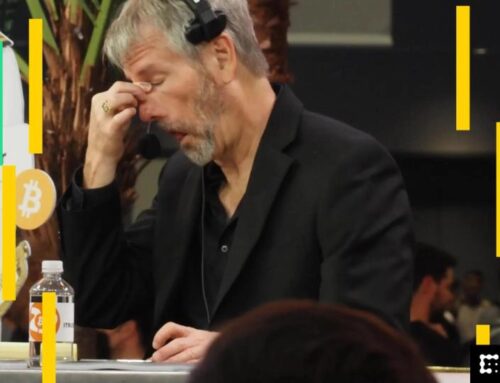Maryland Advocates Call for Penalties on Washington Gas After Ruling on False Environmenta
May 27, 2025
Advocates are ramping up pressure on the Maryland Public Service Commission to penalize Washington Gas Light Company following a March ruling which found that the company misled millions of customers by claiming methane gas was better for the environment than electricity.
The ruling by Utility Law Judge Ryan McLean found that Washington Gas’s marketing statements on customer bills were deceptive, lacking context and verification, and violated state utility law.
In November 2021 the Maryland Office of People’s Counsel, an independent state agency representing ratepayers’ interests before the PSC, filed a complaint with the commission alleging that Washington Gas customers received bills that included deceptive marketing statements about the “environmental benefits” of methane gas.
“Natural gas is a clean, efficient, and reliable energy. Converting an all electric home to natural gas is the equivalent of planting 2.75 acres of trees or driving 26,520 fewer miles each year,” the Washington Gas bills said. “In addition, natural gas cost[s] 1/3 less than electric, which makes it a smart decision for the environment and your wallet.”
Get Inside Clean Energy
Today’s Climate
Twice-a-week
A digest of the most pressing climate-related news, released every Tuesday and Friday.
Get Today’s Climate
Breaking News
Don’t miss a beat. Get a daily email of our original, groundbreaking stories written by our national network of award-winning reporters.
Get Breaking News
ICN Sunday Morning
Go behind the scenes with executive editor Vernon Loeb and ICN reporters as they discuss one of the week’s top stories.
Get ICN Sunday Morning
Justice & Health
A digest of stories on the inequalities that worsen the impacts of climate change on vulnerable communities.
Get Justice & Health
Refuting the company’s claims, the OPC said in its initial complaint that natural gas is a significant source of greenhouse gas emissions and its “production and consumption in the United States emits more than 1,500 million metric tons of CO2—about one-third of the United States’ total annual CO2 emissions.”
The OPC argued that the marketing statement falsely implied that natural gas use did not result in significant greenhouse gas emissions, and misled consumers about other emissions attributes of natural gas.
In later filings, Washington Gas, the gas utility for more than one million customers in Maryland, Virginia and the District of Columbia, defended the statements and argued they were consistent with state policy and supported by government and academic sources. The company also maintained that it was not aware of who developed the billing statements or approved their inclusion on the bills, or where the information in the statements came from.
On March 20, 2025, more than three years after the initial complaint was filed, Judge McLean found these arguments unconvincing, and concluded that the statements were misleading due to the absence of context, specificity and qualifying language, and that Washington Gas’ inability to verify the accuracy of the claims before distributing them to customers was “particularly alarming.” He ordered the parties to work together to determine whether any civil penalties should be imposed.
But since the ruling, the dispute has further intensified, with the OPC filing three additional briefs sharply criticizing Washington Gas’s conduct and calling for substantial penalties.
In its May 14 brief, the office accused the company of demonstrating “disregard—if not contempt—for the interests of its customers and its obligations as a public utility,” and of abusing customer trust and using its monopoly status ”to advance its own self-interest.”
The OPC argued that Washington Gas misused its monopoly position by distributing misleading marketing on bills—a platform only the utility controls—and failed to install any meaningful controls or verification procedures for the accuracy of its statements.
Its briefs also contend that Washington Gas’s aggressive litigation tactics have been aimed at deflecting responsibility, including attempts to reframe the dispute as a referendum on natural gas, and attacks on the OPC’s motives.
The court ultimately sided with the OPC, finding that “it is the inaccurate information provided by Washington Gas throughout these proceedings that has resulted in the ongoing dispute of facts here.”
In its latest brief, filed with the PSC on May 27, the OPC criticized WGL’s litigation strategy as an effort to distort the issues in this case and shift attention from its own conduct, maintaining that Washington Gas has never substantiated its marketing claims and has continued to avoid accountability.
In a brief statement, a spokesperson for the company stated: “Washington Gas is reviewing the decision and evaluating the course moving forward.”
The OPC is seeking both financial penalties and structural reforms. The agency has recommended a civil penalty of at least $1.50 per violation—totaling nearly $5.9 million for the 3.9 million violations, in addition to printing corrective statements on bills sent to every customer who received the false statements.
“Our office plays a very important role in protecting customers from misleading information from utilities,” said David Lapp, the Maryland People’s Counsel. Lapp added that customers are captive to their utility monopolies and are vulnerable to utility marketing that misleads them into believing things that may not be true. “We’re going to vigorously pursue utilities that mislead their customers,” he said.
Advocacy groups have rallied behind the OPC’s call for penalties.
“Utilities like Washington Gas Light need to be held accountable for misleading the public about their product,” said Susan Stevens Miller, senior attorney on Earthjustice’s Right to Zero campaign. “Burning gas causes dangerous health-harming pollution, and Marylanders deserve to have the real facts. Now, the Public Service Commission has an opportunity to impose significant penalties on WGL and set a standard for utilities across the country.”
Josh Tulkin, Maryland director of the Sierra Club, added that “Washington Gas’s actions are a textbook example of why we need stronger oversight. The PSC should impose meaningful penalties and require reforms to prevent this from happening again.”
The scale of utility influence in Maryland has also drawn attention. A recent study by Maryland PIRG found that regulated utilities in the state spent $2.2 million on lobbying and $4.5 million on advertising, underscoring the amount of resources utilities devote to shaping policy and public perception.
An evidentiary hearing is scheduled for Thursday, May 29, where both the OPC and Washington Gas are expected to present testimony on the proposed penalties.
Advocates say the Commission faces a pivotal test—whether it will merely fine the utility or adopt broader structural reforms to prevent future misuse of customer communications.
About This Story
Perhaps you noticed: This story, like all the news we publish, is free to read. That’s because Inside Climate News is a 501c3 nonprofit organization. We do not charge a subscription fee, lock our news behind a paywall, or clutter our website with ads. We make our news on climate and the environment freely available to you and anyone who wants it.
That’s not all. We also share our news for free with scores of other media organizations around the country. Many of them can’t afford to do environmental journalism of their own. We’ve built bureaus from coast to coast to report local stories, collaborate with local newsrooms and co-publish articles so that this vital work is shared as widely as possible.
Two of us launched ICN in 2007. Six years later we earned a Pulitzer Prize for National Reporting, and now we run the oldest and largest dedicated climate newsroom in the nation. We tell the story in all its complexity. We hold polluters accountable. We expose environmental injustice. We debunk misinformation. We scrutinize solutions and inspire action.
Donations from readers like you fund every aspect of what we do. If you don’t already, will you support our ongoing work, our reporting on the biggest crisis facing our planet, and help us reach even more readers in more places?
Please take a moment to make a tax-deductible donation. Every one of them makes a difference.
Thank you,
Search
RECENT PRESS RELEASES
Related Post





